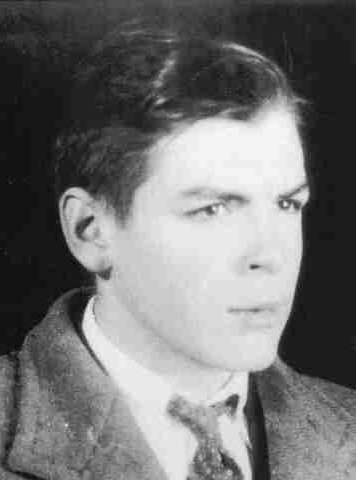I travel not to go anywhere, but to go. I travel for travel's sake. The great affair is to move. -Robert Louis Stevenson
In the last two years, I read two books I found interesting (though not astounding) by two men with fetishes for movement. I found their stories ones I would only enjoy vicariously, but I definitely related to their desires to be on the road. Reading both of these at times I was myself on the move, maybe this is why they resonated.
Today, I wanted to highlight some of of their passages. Please welcome Che Guevara and Jack Kerouac.
Che Guevara on Movement
[The following are excerpts from Che's Motorcycle Diaries.]
It is there, in the final moments, for people whose farthest horizon has always been tomorrow, that one comprehends the profound tragedy circumscribing the life of the proletariat the world over.
Before Ernesto (a.k.a. Che) was conducting guerilla warfare across Latin America, he was motoring across it as a spry 23 year-old with a passion to move. This passion, as I recall reading this on my Big Journey, was the catalyst for his narratives as well as their downfall. While some of his adventures were exciting and exotic, some of his daily jottings were as thrilling as, "We drove all day Tuesday and found a little place connected to a restaurant to crash for the night. The next day we got up and fixed La Poderosa and rode all day until we found another place to sleep." Riveting.
There we understood that our vocation, our true vocation, was to move for eternity along the roads and seas of the world.
The real appeal for me was the idea of jetting across an expansive and diverse continent like South America. He crossed the Andes, met up with the Amazon River, and drank his mate in between long excursions on the open road.
What we had in common - our restlessness, our impassioned spirits, and a love for the open road.

Ernesto blazed these numerous trails with his friend Alberto Granado, but unsurprisingly, he met many people along the way with which to relate his impulses. While on my own excursions, I've often pondered the connective thread between all wandering souls, and though I think it's got to be more detailed and profound than his above description, I think Che is onto something.
What do we leave behind when we cross each frontier? Each moment seems split in two; melancholy for what was left behind and the excitement of entering a new land.
Are we that move the ones most lost or most in tune with the nomadic nature of man?
Jack Kerouac on Movement
[The following are excerpts from Jack's On The Road.]
We were all delighted, we all realized we were leaving confusion and nonsense behind and performing our one noble function of the time, move. (Part 2, Ch. 6)

This is word-jazz, a book that makes the classics list and calls for a straight-through reading session. This novel was more favorable to me when I read more pages in one sitting, because it has a flow, almost like reading Virginia Woolf for its realtime, stream of consciousness rhythm. Just as Jack rode stripes across the continent, he blazed through his own narrative, moving faster than his headlights.
Why think about that when all the golden land's ahead of you and all kinds of unforeseen events wait lurking to surprise you and make you glad you're alive to see? (Part 2, Ch. 6)
I admire Kerouac’s drive to find an honest and original form of expression, just like Van Gogh. For me, that’s what makes this book a classic.
What is that feeling when you're driving away from people and they recede on the plain till you see their specks dispersing? — it's the too-huge world vaulting us, and it's good-by. But we lean forward to the next crazy venture beneath the skies. (Part 2, Ch. 8 )
Reading this novel while on the World Traveler Intern, his descriptions like the one above made so much sense. I couldn't process the speed and activity of each day, but I kept leaning forward awaiting the next day. It was about a whirlwind, not the simple digestion of one experience.
They have worries, they're counting the miles, they're thinking about where to sleep tonight, how much money for gas, the weather, how they'll get there--and all the time they'll get there anyway, you see. (Part 3, Ch. 5)
Profound, Jack.
Our battered suitcases were were piled on the sidewalk again; we had longer ways to go. But no matter, the road is life. (Part 3, Ch. 5)
Jack was impassioned by the constant change. I think my brain starts to trip around when I think of a stretch of road as symbolic of far more than the pavement ahead.
What's your road, man?--holyboy road, madman road, rainbow road, guppy road, any road. It's an anywhere road for anybody anyhow. (Part 4, Ch. 1)
Though Jack's antics and tendencies went against the accepted norm in America at the time, his passion to do so was very American of him, buzzing around the country "nutty with independence."
Behind us lay the whole of America and everything Dean and I had previously known about life, and life on the road. We had finally found the magic land at the end of the road and we never dreamed the extent of the magic. (Part 4, Ch. 5)
Any lasting thoughts from you on movement and the road? Are you a fan of movement for movement's sake, or are you the anti-Kerouac/Guevara? Does this method of living and traveling make little sense to you? Let's get conceptual here.
